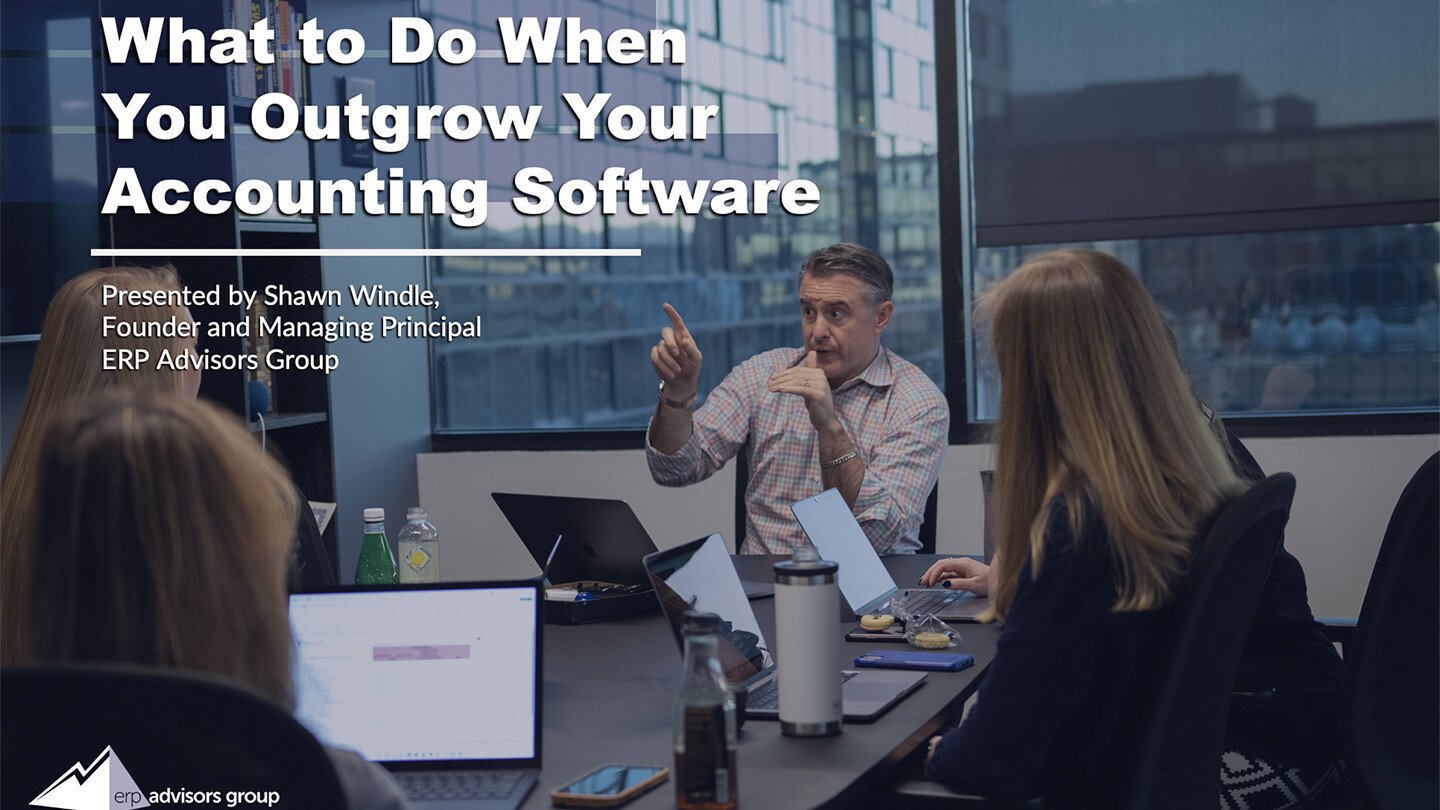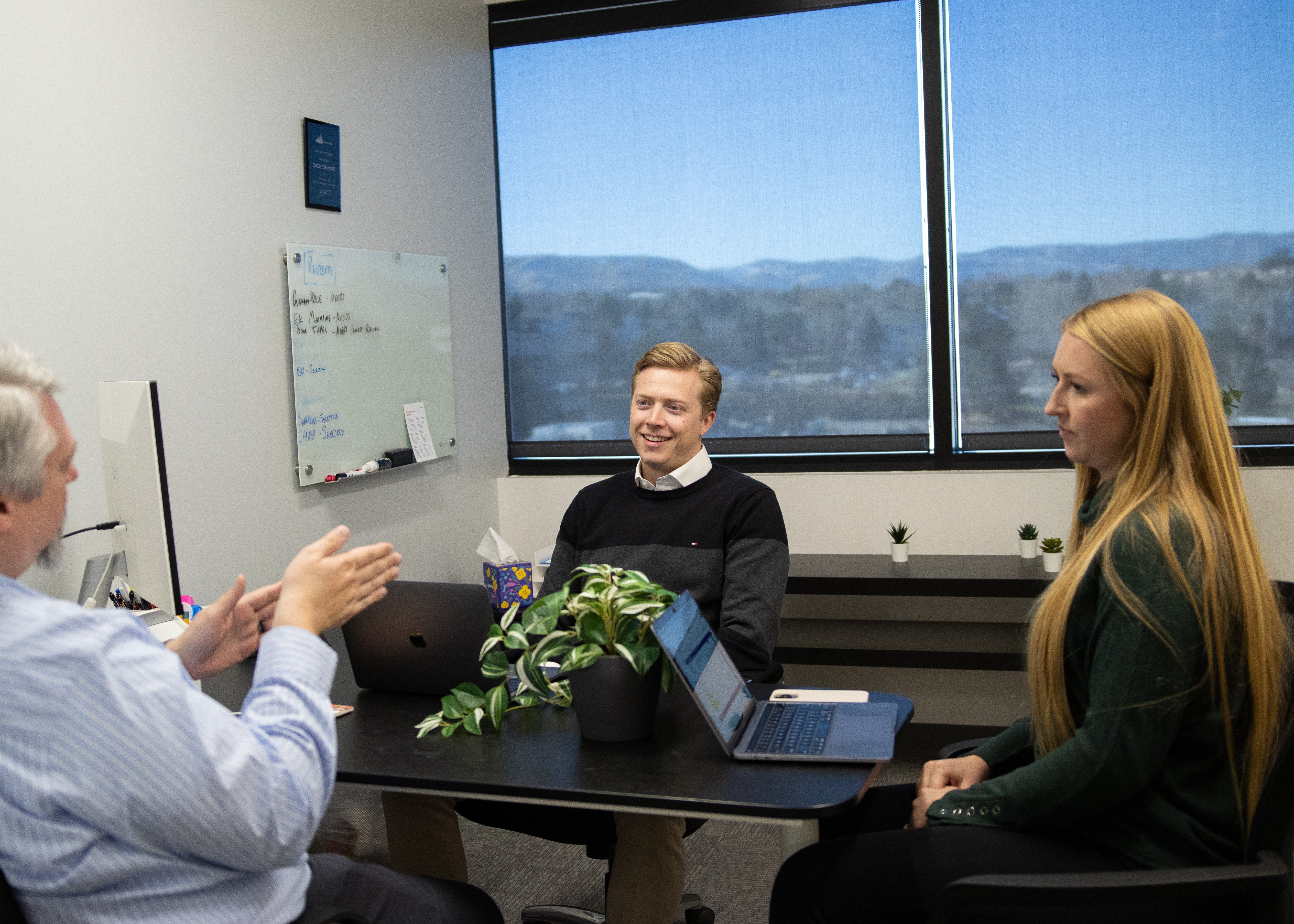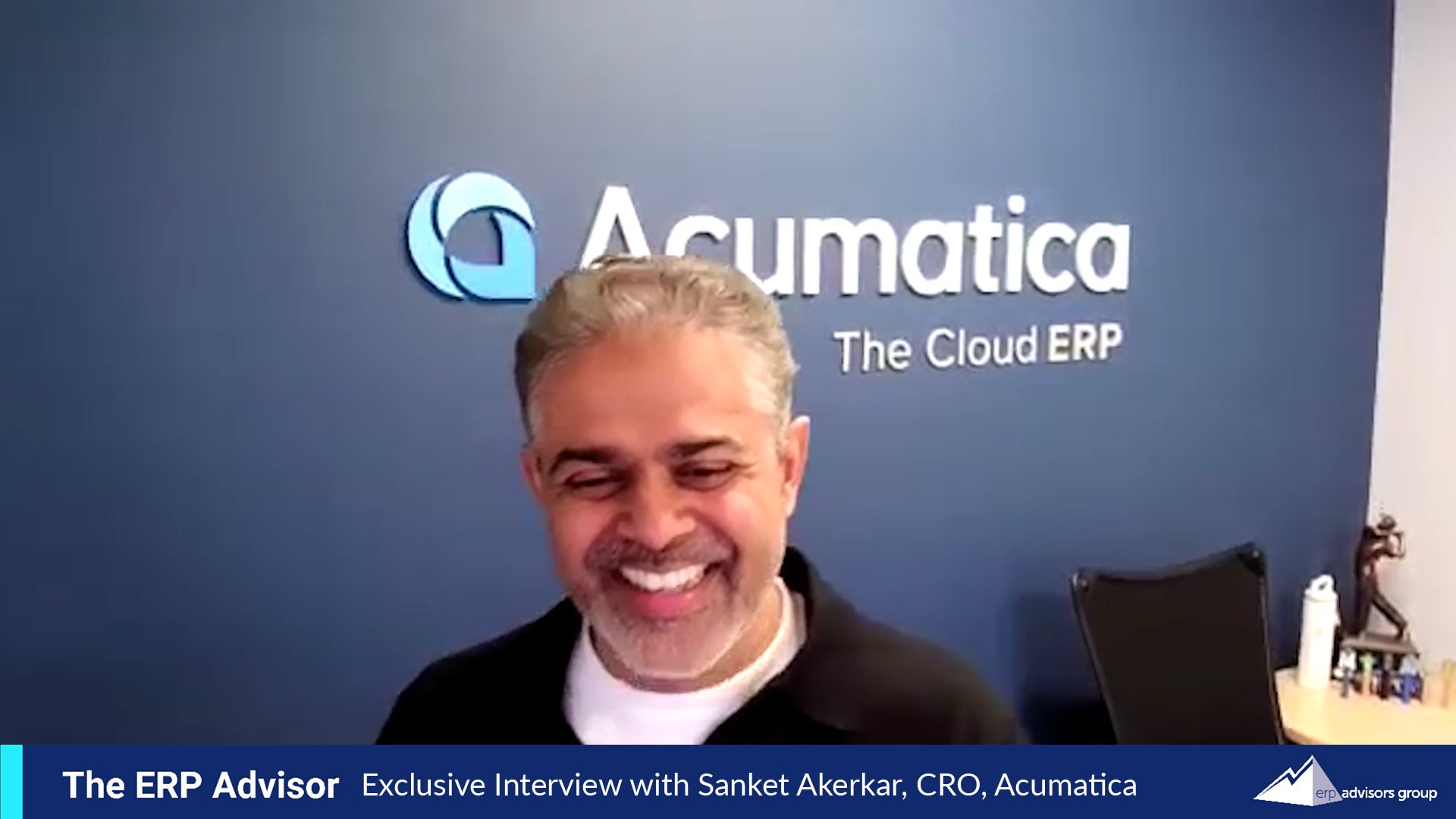
HR software has the potential to touch every single employee in your business, impacting not only HR specialists but also managers, executives and all the way down to the newest member of your team. Here are a few ways good HR software positively affects each level of employee in your business.
HR Specialist/HR Department: There’s no doubt that HR software impacts your HR department first and foremost. In many of the cases we see, the HR department already has some sort of solution in place, but they may be “frankenstein-ing” multiple solutions to handle everything from recruiting to talent management. This usually results in inefficiencies created by the need to enter the same data point into multiple systems manually. HR specialists get into this field because they enjoy working with people and helping them build careers. But when those employees spend over 80% of their time on data entry, they are not able to handle more strategic HR issues, not doing the parts of their job they are best at, and not reaching their full potential. Having a good HR software in place dramatically increases the morale of the HR department or specialist because it automates the redundant tasks and allows them to focus on what really matters most.
Managers: Managers and executives are obviously important and valuable assets for your company, and they are often the busiest and most time-invested of your employees. When our ERP Advisor Group consultants are out in the field talking to managers and executives, a majority of them find HR tasks superfluous to the overall objective of their job. A good HR software can automate many of the tasks managers are responsible for such as approving or declining paid time off (PTO). An employee can simply request PTO and the manager hits approve or deny in an email, without even opening up the application — which makes a potentially time-consuming process nearly instantaneous. HR Software also creates an auditing trail for employees, which is extremely helpful when it comes time for performance reviews (or creating a Performance Improvement Plan, a task that many managers do not relish). Managers can see the feedback they have added for a staffer or what other employees have written without having to keep track of paperwork. A comprehensive software lets managers and executives get back to their jobs and back to managing their departments and goals — not just the people.
Employee Base: It has been said that performing inefficient, repetitive tasks brings down morale. If you want to increase a person’s happiness, keep them busy doing the tasks that they are good at. Production is the basis for morale. For many of your employees, filling out paperwork that is just going to get re-entered into multiple systems is an inefficient task, and they are well aware of that. They are also aware of the fact that your organization isn’t as modern as it could be and that’s exactly the message you are sending. It can be potentially embarrassing for your employees to perform such meaningless tasks that a simple application could automate.
The bottom line is that if you’re not running a modern, comprehensive HR application, your employees are suffering. It’s not always easy to quantify all of the benefits. But it just makes sense. There are numerous applications in the marketplace today, some new, some established, but none are exactly the same. Choosing the right HR software for your company comes down to the needs, goals, and wants of your organization. If you want to increase the morale of your HR department, your managers and executives, and your overall employee base, it is time to start researching a comprehensive HR solution.
Shawn Windle: So, can HR software really improve employee morale?
The answer may surprise you, so this is this is kind of a — there's a very interesting topic there. Very few other business applications can really impact directly employee morale like HR software can.
There's lots of other different kinds of applications that businesses run, but they are more tools that are used for productivity and for automation of processes, and they're all fine and dandy. But at the end of the day, the one application that every employee uses throughout the business is the HR software.
So, we thought it'd be helpful to share some insights on how you could increase your employees’ morale with good HR software.
So, what is HR software?
And it's made up of core HR which is basically the employee information — basic employee information, including their demographic information, dependent information — very specific things about the employees. That's one area.
Second area is payroll, which is all of the logic and capability needed to pay employees as well as pay taxes — employee taxes, payroll taxes.
And then benefits is the third area.
And benefits administration specifically on when you have administration or you have benefits that you've offered to your employees that you need them to enroll in their benefits, need to allow them to change their benefits elections, as well as tell the benefits providers what elections your employees have made. And then you need to send the payments from your deductions from the payroll for benefits payments directly to the benefits providers.
So, those are the three areas that query HR payroll benefits.
Some of the benefits of using a strong core HR software solution is that you automate many HR tasks that would have been done manually before.
So, if we look across all those areas, there's a lot of paperwork involved in each one of those core areas of core HR, payroll, and benefits. So, we're moving out of paper and we're getting into a system to do that.
And then the second major benefit of using a strong core or core HR system is a self-service for employees and managers so employees and managers throughout the organization can go into the application for themselves and get whatever data they need to.
And then another really big benefit is that we have integration back to the bank and benefits providers, so there's a lot of data that gets transferred between the organization, the company, the not-for-profit to their bank and the benefits providers, and with the technology, the technical integrations in place, the relationship with the bank and the benefits providers actually drastically improves.
So, that's really the third key benefit of a strong HR software solution.
Now there are other types of modules that come in HR software. We call them advanced modules. And there's recruiting applicant tracking onboarding, talent management and learning compensation, even some international support, too, that gets kicked in there and each one of those advanced modules automates a specific portion of the employee lifecycle.
So, of course, recruiting and applicant tracking — there are a ton of benefits that recruits receive from new software solutions that organizations use. There's three big ones though.
The first one is the advanced recruiting and applicant tracking solutions makes communication with the corporation a lot easier because they know to go into the app and they know that they can submit data and they're going to get a response on it.
The second thing is that the recruit is getting to know the organization by how they're recruiting lifecycle — their processes go — so it gives you good insight into what the corporation is going to be like once you work there.
And then the third, of course, is from the recruiter’s perspective that they can coordinate the recruiting process much better because it's automated.
And can report better back to their business partners on whether it's operations or accounting or wherever throughout the organization to say, hey, here's all the recruits that we got, here's the exact folks that are going through the recruiting process. They can manage which recruits meet with which interviewers, so tons of benefits there that even recruits and recruiters get from those modules.
And then as we’re continuing here to describe what HR software is, another area that's really helpful is — we've talked about recruiting as we look across the entire employee lifecycle, recruiting is the first area and applicant tracking, the second area is onboarding.
So, once you've hired that recruit and gone through all of the vetting processes and get their paperwork signed and get them to the point where they're starting with your organization, you can immediately flow them right onto an onboarding workflow process.
And that helps to coordinate all of the technology, building security cards, everything from user IDs and passwords, computers that need to be assigned, cell phones, even things like notifying their hiring managers that they're going to start getting an office set up for them through property management.
All of those tasks can be automated through the onboarding process, which makes it really nice for an employee who's starting. But also for the employees that are involved in getting that employee onboarded, because technology now isn't getting hit and bombarded by a bunch of emails that get lost.
You can have your onboarding workflow track exactly where each recruit is in that process, so we see a lot of happiness from companies that are using total onboarding processes.
And then just a couple more advanced modules.Again, as I said earlier, the core modules are core HR payroll benefits — you got to have those, but these advanced modules are nice to have and that's where we see a ton of morale improvement.
So, after we've talked about recruiting in applicant tracking, we have on boarding and then the next key areas of talent management, where if you think about now that you have an employee who's onboard, they're working, there's performance reviews that need to happen, there's succession planning that occurs, there's all kinds of analytics they need to track about an employee. And that happens through talent management modules.
There's a very common one in the marketplace — Taleo from Oracle. SuccessFactors is out there also that SAP purchased. Those are nice — but you really need to look across the entire life cycle of the employee to where applications like SyncHR or Ultimate, some of these other apps that are newly entering into the marketspace that are little newer like, namely provide some of these benefits as well in terms of the software solutions.
But the bottom line is if you look at the more the employee lifecycle is automated and the easier it is for the employee to get to be able to do performance reviews, to be able to see what their performance reviews are, to provide input into other employees’ performance reviews, managers having tools where they can run performance management, you can see it makes a big difference.
One of the other last — or one of the last advanced modules I'll mention, too, is compensation.
We're seeing this more and more where strategically across the business when you look at annual increases, different businesses do it different ways, and different nonprofits do it different ways.
A department may be authorized for a certain percent increase and then the manager has to decide how to allocate that across their people, and it's certainly reminiscent of a spreadsheet somewhere where you can model that out, but compensation modules that are part of these advanced modules allow you to do that kind of functionality.
And that really helps to me make better decisions so that managers are more understanding of what their comp decisions could be and can plan that out and look at it. So, that makes for them to be happier as well as the employees that receive the comp.
So, that's kind of what HR software is in a nutshell. There's a lot more to it, but that's a good overview.
So, I want to switch topics here a little bit and talk about the fundamental shift that good HR software allows you to make with your employees. So, I'm breaking this down into three areas.
There's a shift that you see that happens for the HR department, of course. The second area is for managers, supervisors, executives throughout the organization. And then the third is really the entire employee base.
So, the shift that we see for HR department is — it's dramatic in terms of the morale improvement that you get from an HR department with really good HR software.
Usually HR departments have already some solutions that they're using, but it's multiple solutions and so then they end up swivel chairing is the best phrase — duplicate entry, double entry — but swivel chair is literally what happens. That's why most HR people have swivel chairs if they have multiple computers at their screens.
But the bottom line is they're entering data into one system to the recruiting system, and then the person gets hired and now they have to go to the payroll system and then they have to put something in for the HR system and it's really — I've seen this personally where it really wears on HR specialists when they have to be doing and spending most of their time with data entry.
We had one client recently who said 80% of her time — she was the HR director and did not have anybody else in her group yet. It was an organization that was building that out and she was spending 80% of her time doing nothing but basic data entry.
And the reality is, it's most HR specialists. They don't get into HR to maintain employee data; they want to help people. That's why they go into that particular area. So, if we can automate their redundant data tasks, that really does free them up to handle more strategic HR issues.
So, by far very easy to measure employee morale improvement in an HR department after the implementation of good solutions.
Then for managers — managers today and almost every client that we work with that's a mid-size organization — it could be relatively small early stage, well-funded startup all the way up to $500 million, $600million, $750 million in revenue.
We have a prospect we're talking to that's a billion dollars in revenue. Their business model generates a lot of revenue, although they're internal folks, there's not a lot of people that support the business.
So, I mean across the board from clients that we see is that managers are extremely busy — everybody has way too much on their plate.
And certainly that core group of people in the organization that actually make the biggest difference, which should be the manager folks that they are so busy that when it comes to HR tasks, they may view it as being maybe a little superfluous to the overall objective of what they need to do, whether or not that's true is a different story.
But the bottom line is good. HR software makes managers happy because they get things like automated notifications. Your employees requested PTO? Okay, approve or decline. Click a button. That's all you have to do. You can do it right from an email, too. You don't even have to go into a system. You can check on your employees much easier by just going into the application itself.
And then even for things like performance management, certainly for performance reviews are much easier facilitated. There's not a lot of paperwork that managers have to keep track of, and they can get back to their day jobs.
So, you see especially like an audit trail, too, is helpful with that for managers so that when they come to a performance review they've got things that either they put in or other folks have put in throughout the year that helped to finish up that annual review process.
But again, the HR good — and again I'll qualify with good HR, but good HR software can really make a difference for managers throughout the organization.
And then the third group was the rest of the employee base and really for everybody is that doing inefficient tasks brings down morale.
We heard once that production is the basis of morality. And it's really true that if you want to increase somebody’s happiness, the best way to do it is get them busy doing something that they're going to do really good at.
So, giving employees a bunch of paperwork to fill out is not productive, and they know that.
We've sat through open enrollment periods with employees and have heard the comments that you get back all the way from lineman to senior executives, nobody likes filling out their forms. They know that it's not productive, they know somebody else is going to have to take that form and scan it in, and then they enter it into a system and then they enter it into another system.
And so, employees realize that doing these inefficient tasks, like filling out HR forms is something that they really don't want to do.
And much to mention here as well that as an employee, especially if you're filling out the hard copy forms, they're easy to lose and you spill something on it and it really just again leads to a lot of inefficiencies.
But the bottom line though in a manufacturing organization that we worked with once that was, just recently actually. They implemented and went live successfully. They implemented a time tracking system because every day each employer was required to go to the same sheet of paper and put in what time they came in, the time they left for breaks, what time they came back from breaks, and what time they left at the end of the day.
And the employees were embarrassed by the fact that they had to do that. It was actually an embarrassing point because they knew that there were tools out there that could handle this — software solutions — that weren't even that expensive.
So again, it comes back to the employees viewing the organization as being a more modern organization to work with and an organization that has their stuff put together, very frankly.
So, it's a bit hard to quantify the benefits of a new solution for the entire employee base. You can say, well, it takes some 15 minutes to fill out a paper timesheet and then another hour to move the paper around. If we do a system that's going to eliminate that time and the employees time is worth $50 an hour cost and multiply that times all that. Yeah, you can do all that, but the reality is that the intrinsic value of having good software for employees — it's pretty obvious.
You have to just be a reasonable person to be able to look at it to say, oh, those are things that make a lot of sense.
So bottom line, if you're not running a modern HR application, the honest to gosh truth is your employees are suffering from it.
They might not be saying it, although if you ask some of the more productive, more experienced folks that are your key people, how do you feel about filling out the paperwork that you have to for HR? Or how do you feel about getting all the forms from the benefits carriers each year and filling it out? Or what do you think about our recruiting and applicant tracking process when I have to email you and then call you and then send you a meeting request through Outlook to get you on the recruiting schedule and yadda yadda yadda?
They're going to come back and say, you know, what? It's terrible. I don't like it. I don't like it at all.
And I think it's always been that way. But what's happened in the last — I would definitely say at least the last five years but certainly it started before then — is that there are so many good HR solutions in the marketplace that now it's real for an HR director or VP of HR or VP of talent, maybe even an HR specialist who's running the 200-person company and has one person.
Very real for that person to go out and not just get an outsourced payroll solution — those have been around for a long time but to be able to come to look at HR processes in the life cycle and the employee holistically be able to say, you know what? We have to go get this software.
And again, most organizations that we work with have one app for recruiting — they might use Jobvite whatever. There's some onboarding tools that they use. It might even be SharePoint, whatever, and then they've got ADP for payroll and benefits administration and that's fine.
But what we would say is to get that real big employee morale boost from the HR department to managers to the entire employee base, really need to look at an application that streamlines the whole thing.
If they can do it all, great. And if maybe there's best of breeds that make sense that all integrate really well, too. I think either strategy is a very good strategy to pursue.
But at the end of the day, the bottom line is doing something in this space is better than nothing.
And of course, coming from ERP Advisors Group, we're going to say you need to go through a thorough selection process just to see the differences in these applications that are out there.
You'll be amazed even the difference between something like ADP and Ceridian. Both apps have been around forever. Once you really get into a detailed demonstration, you start to see how different they are and in this space of HR, like I mentioned earlier, you have core HR and then you have the advanced HR areas and some apps do it all.
Workday is a good example, although for payroll they rely on ADP, which I think may be changing or Ultimate’s another one that does everything versus Taleo that does pieces of this or Oracle HR Fusion —HR cloud — or Cornerstone’s in here that started more learning management and they've moved out to some of these areas, too.
So, when you're looking at these solutions, just know that they're all really different and you never really know what those differences are until you ask the vendor and you're specific about what your needs are.
So, as I said, bottom line, definitely look at the HR solutions that are in the marketplace.
Your employees are absolutely going to have an increase in morale. And at the end of the day with your selection do it diligently. Don't make a stupid mistake to be honest with what you're getting into, and I can guarantee you your employees are going to be happy.
Juliette: Thanks, Shawn, thank you everyone for joining us for today's call. Please let us know if you have any questions and we'll be happy to answer them for you.
If you'd like a summary of today's talks, be sure to email us and we'll send it out to you.
Our next call is Tuesday, April 8th about deciphering software solutions for professional services in this segment. In this next edition of The ERP Advisor, we will help you understand the project management software market in a simple model, and we will discuss four specific criteria that you must consider when choosing a best fit application for your needs.
Please go to our website erpadvisorsgroup.com for more details and to register.





